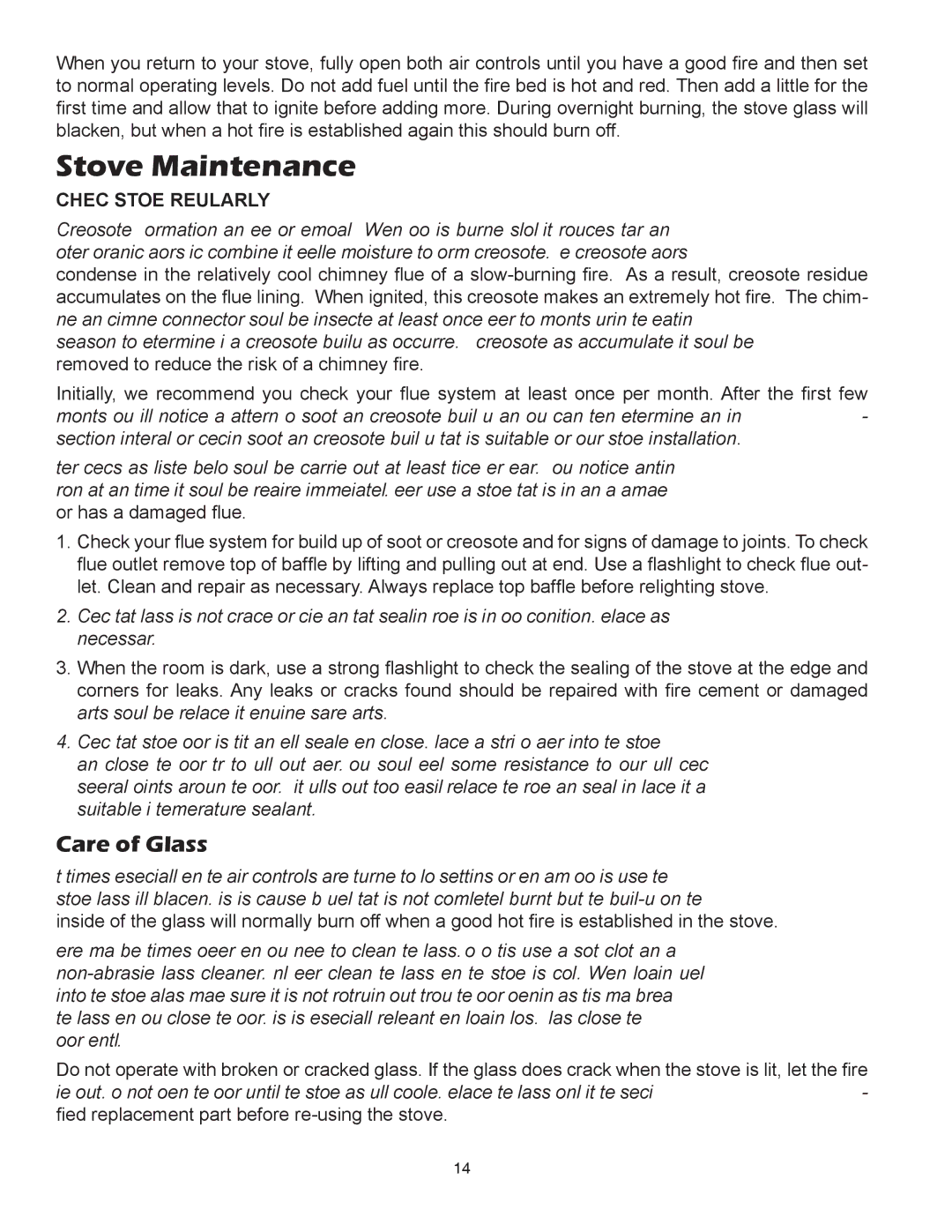3800PB, 3600PB specifications
The United States Stove Company has made a name for itself in the realm of home heating solutions, known particularly for its reliable wood and pellet stoves. Among its impressive lineup, the 3600PB and 3800PB models stand out for their efficiency, functionality, and innovative features.The United States Stove 3600PB is designed for homeowners seeking an efficient heating source. This model boasts a heat output rating of up to 64,000 BTUs, which makes it capable of warming spaces up to 2,500 square feet. Its substantial hopper capacity allows for extended burn times, ensuring that users can enjoy consistent warmth without the need for frequent refueling. The 3600PB employs a direct venting system, which enhances efficiency by ensuring that outside air is used for combustion, significantly reducing indoor air pollution.
On the other hand, the 3800PB model pushes performance even further with a heat output of up to 80,000 BTUs. This makes it ideal for larger spaces or homes with open floor plans. The 3800PB also incorporates a large capacity hopper, capable of holding up to 120 pounds of pellets, allowing for longer burn times that can easily extend through the night. Both models come equipped with a digital control panel that simplifies operation and allows users to adjust heat settings and monitor pellet levels easily.
In terms of construction, both the 3600PB and 3800PB housings are built with robust materials designed to withstand the rigors of regular use. The heavy-duty steel design not only enhances durability but also improves heat retention, allowing for superior heating efficiency. These models also feature an automatic ignition system, which makes starting the stove effortless and reduces the need for manual intervention.
Safety is paramount in stove design, and both the 3600PB and 3800PB come with built-in safety features such as low-oxygen sensors and thermal overload protection. Additionally, the advanced airflow systems in these models are engineered to provide a consistent burn while minimizing emissions, aligning with modern environmental standards.
In conclusion, the United States Stove 3600PB and 3800PB are excellent choices for anyone looking to invest in reliable and efficient heating solutions. With their robust construction, advanced technology, and user-friendly features, they promise to deliver both comfort and convenience in a variety of residential settings. Whether you’re heating a compact space or a sprawling home, these models are designed to meet diverse heating needs while embracing efficiency and safety.
